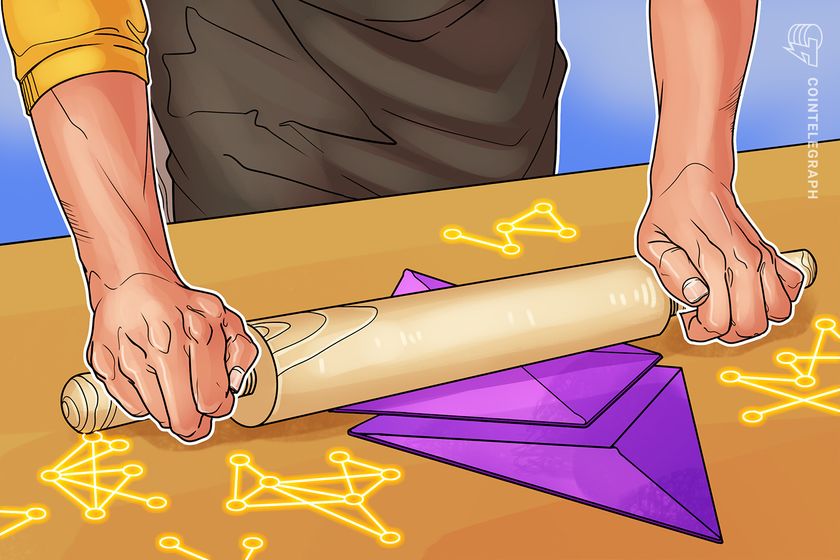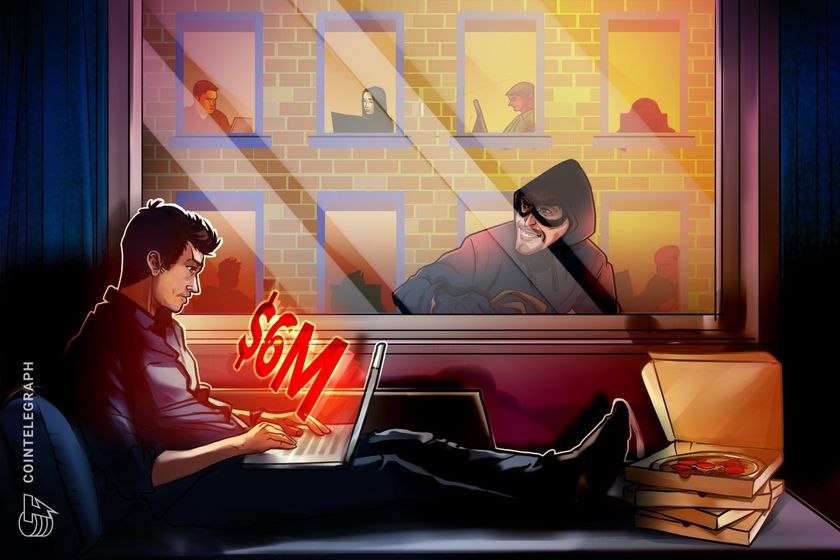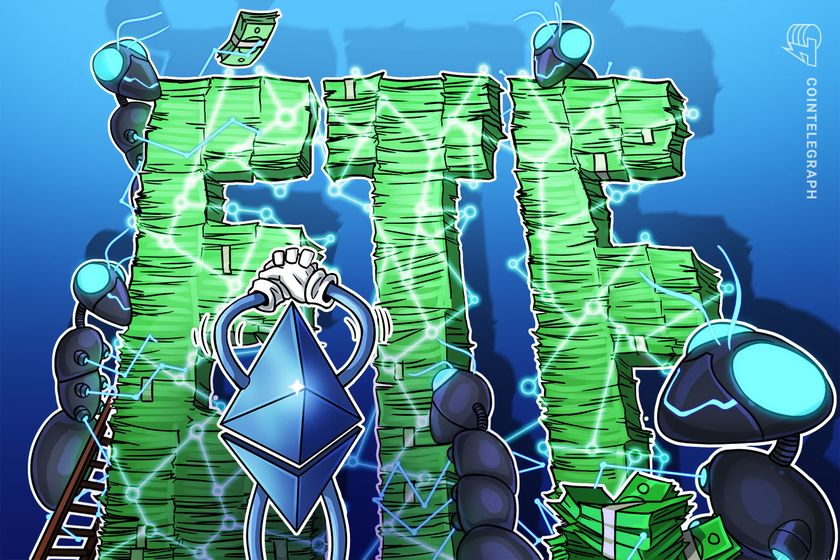Why join a blockchain gaming guild? Fun, profit and create better games

Blockchain game developers are turning to gaming guilds for market research and to enable players to help create better games.
Blockchain gaming guilds are the continuation of an ancient tradition. Guilds have existed since the beginning of capitalism in the fourteenth century. The most popular European artisan guilds were seven major guilds of Florence known as Arti Maggiori, which helped refine and improve crafts and trades from medicine to banking and weaving.
Can blockchain gaming guilds perform a similar role to help refine and improve games and gameplay? Were in the middle of rapid experimentation to find out.

Colin Goltra, chief operating officer of Yield Guild Games a decentralized autonomous organization says that similar to the ancient guilds, a gaming guild is a group of players who pool their resources and collaborate to achieve greater rewards. They work with valuable in-game digital assets in games developed by decentralized communities.
As the blockchain gaming sector grows rapidly, guilds have positioned themselves as key entry points for new players, offering unique feedback loops with informative insights into game design, future gameplay and education around blockchain features of games.
Gaming guilds onboard new players
Up to date and accurate research on blockchain gaming guilds appears thin on the ground. According to BreederDAO figures, a Philippine-based blockchain gaming startup, the top 25 guilds had a potential base of 900,000 players by the end of 2021, but only 89,935 scholarships were operating. However today, YGG alone has 30,000 scholarships so those numbers are out of date, but it seems safe to say there is likely still a large untapped base out there.
Fundraising figures are also opaque. BreederDAO estimated that guilds raised more than $500 million by 2021, but DappRadar reported that guilds raised more than $320 million by the end of 2022. Adding to the fun, the World Economic Forum released a report at the end of 2022 suggesting the figure was closer to $200 million over the previous couple of years. Either way, the top guilds are well-funded despite significant revenue declines due to the impact of crypto winter. Most of the 24,000 guilds in the market right now are micro guilds of 10100 players, while only 1% are in macro guilds with more than 1,000 players.
Gaming guilds provide education and tools, starting at the very beginning by equipping noob gamers with an understanding of NFTs and how crypto-enabled platforms work, through to much more advanced strategies on how to profit from gaming. One of the benefits is creating strong and loyal communities that pursue the goal of wider adoption of crypto and Web3 technology.

In contrast to Web2 games, Web3 gaming communities take on a different character, explains Goltra. YGG offers a pool of active gamers, and as a leading DAO in the blockchain gaming space, they ultimately want to bring all of their player interactions and data on-chain.
If you can train a community to interact with on-chain games, playing with digital assets on-chain, then you have created a unique group of gamers that can generate real rewards.
Shadow Legacy gaming guild
Shadow Legacy Guild has carved out a patch for blockchain gaming in the Eastern European market, which founder Pawel Padziunas says was underserved for a long time. They now have over 6,300 members and 19,000 Discord members, focusing on esports, tapping into players on demand and renting options.
Padziunas believes the player acquisition feature with early game support, including testing the game, the game economy and promotion of game potential is a vital component of their guild mechanics.
The first thing that the guild does is education. They help players to understand and navigate the game, he says, adding there is a big learning curve for players to understand the longer-term value of Web3 games. Like Goltra, he believes the sense of community is part of the appeal and purpose of guilds.

Building a community around the game is important for guilds, too, and the gamers need to feel a sense of fun and want to spend time with other players, he says. Shadow Legacy Guild prioritizes this over the potential financial rewards for players.
For us, collecting or ownership of assets is not a must. This is a shift to a model where earning is an additional option or a bonus. The focus on education allows guilds to communicate a clear value proposition outside of the financial incentives, he says.
This is an important point, as a purely mercenary approach to gaming is not sustainable.
If the game is built around earning, only then it will eventually collapse, as everyone will want to remove everything valuable from the game, Padziunas says.
Good games are better than good money
Kieran Warwick, CEO and co-founder of Illuvium, which bills itself as an open world exploration, NFT creature collector and autobattler game, sees gaming guilds as key facilitators in the Web3 gaming space.
They have an impact on the onboarding of players, engagement and education, he explains. In fact, most developers and founders Magazine spoke to for this piece were in agreement that making good games was more important than making good money.
When someone starts to speak about education, its clear that their mindset is in the right place, rather than only want to do a cash grab of some sort, or even worse leveraging people that are less financially stable for their own gains, says Karl Blomsterwall, CEO of Nibiru Software the Web3 developer behind the strategy game Planet IX.
That said, guilds need to appeal to players who are playing for rewards specifically, those who are experimenting with NFTs and those who just want to have fun.
Planet IX is a trading and strategy-based game built around NFTs. It promotes a sustainable future, attaching tasks to a digital rendition of the world. Blomsterwall believes that ownership of assets within the game is a fundamental part of the appeal.
In Planet IX, there are over 1.7 billion NFTs, and there is a lot of trading to be done. For us, there is a role where the guild supports this trading, acting almost like a broker, helping players to trade and taking over that process if a player doesnt want to deal with that activity of play, says Blomsterwall.
For people to feel comfortable spending the time playing a game and spending the resources to really participate in the game, then, of course, there needs to be a level of trust that they will be rewarded for this time.
Gaming guilds shape the future of games
Gaming guilds can crowdsource feedback for game developers to help them design the mechanics of games. The large pools of players guilds have access to mean this feedback loop can be an invaluable form of market research.
Gamers can be incentivized on a new level. Game developers can share with their players, and this helps players to be part of the process Once you develop a game with a strong community, you will see that they are involved in the game like never before and can have an impact on the game, says Padziunas.
As a new business model, many dont understand that it is a business. Incentivizing players with rewards and the cooperation that comes with this community bonding works for all parties involved: game developers, players and guilds.
Furthermore, guilds can set up shop within the gameplay itself. In The Bornless, a Web3 horror gaming franchise, there are unique locations called Safe Houses that guilds can hire out to allow players to get acquainted with the game quickly from within the gaming environment.
Safehouses are the hub of our game, explains Josh Palumbo, head of business development at The Bornless. Guilds and players can start off with smaller free versions and upgrade or work toward larger ones. Players will also be given the option to join larger safehouses and access many extra features of the game.
The Bornless name the guilds that they work with Factions (of the Order of Solomon), which Palumbo explains is mostly a branding decision. There was a small part of that decision that wanted to stray away from using the term guilds, as they have gotten some slightly negative connotation in Web3 recently, being seen as rewards farmers.

For many new gamers it is their first time playing with NFTs, and they may not feel comfortable with the high upfront cost of in-game assets. As part of a guild, they can opt to rent an NFT, which makes the asset more attainable for beginner gamers.
Solomons wisdom on governance
The partnership model that The Bornless has adopted is a unique way to entice new players to engage with in-game scenarios and the wider community. They are working with over 60 Web3 guilds currently and have introduced a Solomons Council, which provides feedback regarding gameplay and future story plots.
This council is made up of select guild partners that meet about once every two to three weeks. They get insights into alpha in development that we dont share publicly; we gather their feedback, and eventually, they will be able to make different sorts of governance decisions in regards to gameplay, features, explains Palumbo.
The whole purpose of the council is to garner a really robust social environment within the game itself where factions will be incentivized to grow, expand and progress. They then will be able to compete against or with other factions through a variety of special events.
We believe that players seek out social relationships in gaming, and this gives them a way to contribute towards meaningful progression in the game with their friends, shares Palumbo.

Gaming guild eSports for the fun of it
Its a similar strategy in the esports gaming segment, where GoodGame Nation (GG Nation for short) highlights the fun elements of competitions rather than a very transactional relationship with the gamer, explains co-founder Manan Mehta of some other guilds.
What were catering towards is competition, affinity, culture, creation fandom, and thats actually what will enable Web3 games to succeed, continues Mehta.
GG Nation builds micro guilds for the student population in India and has a network of players across all major college campuses. For GG Nation, esports dont just revolve around tournaments, but coaching, training and education are key components.

For Mehta, celebrating the pure enjoyment of playing is more practical than trying to make money from it.
Its a utopian viewpoint to imagine that just by purely gaming, you could earn a living out of it, he says.
That was doable in the pandemic because there was nothing else to do. However, were seeing that as the world opens up and the economies have opened up, you cant just game and make a living.
That said, the bar is pretty low for students when it comes to earning money.
If a student earns about $200 once while gaming, thats great money for a student, whereas $200 for an average guild participant is not good enough, and they would rather be going back to work.
GG Nation focuses on about 10 games that are attractive to the student population, so they arent overwhelmed by the number of games on offer. Mehta says they dont want to become a game discovery engine.
DAOs support the lifespan of games
Gaming guilds are often decentralized autonomous organizations, which means that games can potentially become user-generated content and just keep on evolving. Animoca chairman Yat Siu hinted at this when he spoke to Magazine recently, pointing out that Second Life and Eve Online are now two decades old and are still going strong because they are sustained by user-generated content.
Although the road to fully decentralized games is full of hurdles, we are already seeing gaming communities step up and take on more decision-making in relation to games.

A recent example is when the Illuvium game developers suggested a battle with Su Zhu, the controversial 3AC founder, last month, they knew that it would be controversial in the eyes of their community.
Illuvium PR stunt
Illuvium is a blockchain game set in a fantasy world where players hunt for powerful creatures known as Illuvials. It is being developed by the Illuvium DAO.
Kieran Warwick, co-founder of Illuvium, concocted the idea to battle Zhu in the game to promote the newly launched Illuvitar NFT collectible game.
However, the Illuvium community raised concerns about the PR stunt and associating its good name with Zhus, given 3ACs bankruptcy destroyed many in the industry. The DAOs five-member governance council then voted on a proposal that the originally presented d1sk battle shall be canceled, which was upheld with four votes. Warwick was delighted and used the decision to cancel for publicity instead.
This is more like representative democracy than direct democracy, but it does appear to have reflected the wishes of the community. Warwick is also the CEO and sits on the council with the other nominees, who were voted in by tokenholders.
All of the typical activities you find that are run by C-Suite executives are now managed by the Illuvium council that vote in a transparent way and keep the community involved.
The DAO is now trying to improve on the model, with the community proposing a new governance structure that would add four sub-councils: Game, Marketing, Strategy and Community.
Warwick is a true believer in decentralization, and all of the discussions that happen in their meeting chambers via Discord are taken to an on-chain voting mechanism.
He is excited about the future and notes that it is a complete flip on what traditional company structures are. It is a bottom-up approach that can be extremely fascinating to watch and as long as you have positive participation from the community, the future is bright, he adds.










